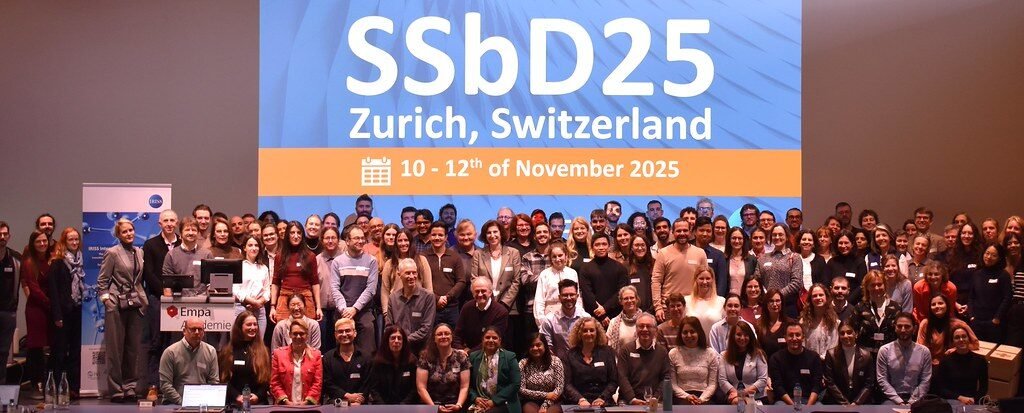The MACRAMÉ Project just published an important milestone report: the ‘MACRAMÉ Harmonisation & Standardisation Roadmap Summary Report for MACRAMÉ Methods and Models‘-report combines and summarises the Project’s activities in the field of ‘Development and Advancement of Characterisation- & Test-Methods &-Protocols’ (Project work package 2) with the activities pertaining to the ‘Identification, Demonstration & Validation of MACRAMÉ Methods in Use-Cases’ (Project work package 4).
Based on a needs-assessment analyses of the Project’s stakeholder communities, the following five technical ‘destinations’ have been identified:
- characterisation and sample preparation of carbon-based materials,
- aerosol generation for inhalation studies,
- in vitro / ex vivo models for inhalation toxicology,
- ecotoxicity studies, and
- sustainability assessment.
For each of these technical categories, a specific roadmap has been developed, evaluating the potential use of the associated methods under development in the MACRAMÉ Project in the regulatory context. The level of maturity of each method selected has been evaluated by the team leading the Project activities on ‘Translation to Standards & Policy’ (Project work package 5), and their potential suitability for harmonisation and/or standardisation in the available committees (e.g. ISO TC/229, OECD, CEN/TC352, VAMAS, ASTM E56) has been considered, in order to plan the potential steps towards a successful and timely harmonisation or standardisation.
Know your Stakeholder Communities!
A central and important element of the analyses underlying this Summary report (as well as its constituent individual roadmaps) was the through engagement with the various and diverse stakeholder communities the MACRAMÉ Project pledged to work with and ultimately serve through its activities and outputs. The right and timely level of engagement are key, in order to obtain a clear view of the needs of each community, and build a level of trust by the stakeholders that their time commitment and feedback are in good hands, where it will be used to develop a constructive return to the community.
Within the first 18 months of Project duration, the MACRAMÉ team therefore held one Workshop on Harmonisation & Standardisation (22.-23. November 2023; online), a 1st Regulatory Risk Assessors Summit (27.-28. November 2028; Berlin), and two webinars: (i) Standardisation & Valisation made simple (9. April 2024; online), and (ii) AOPs: A Tool to include NAMs into regulatory testing? (11. April 2024; online).

With >40 participants of the in-person Risk Assessors Summit and up to 160 registrants for the online workshops and webinars, the MACRAMÉ team was able to gather detailed and meaningful input from the different stakeholder communities.
The detailed input by the separate stakeholder communities enabled the MACRAMÉ team to conduct in-depth analyses and background checks of the various stakeholder needs and opinions, in order to enable prioritisations and time-critical roadmapping of the next steps to be taken.
MACRAMÉ Roadmap on the Characterisation & Dispersion Protocols of graphene-based Materials
An online polling survey targeting expert stakeholders was organised during the first MACRAMÉ Harmonisation and Standardisation Workshop on 23rd of November 2023. The survey aimed at:
- identifying the remaining priorities for standardisation of methods measuring the pristine properties of GR2Ms (graphene and related 2-dimensional materials), and
- discussing the minimum set of physicochemical parameters to be measured in the media used for biological or ecotoxicity assays.
discussing priorities for the toxicity and ecotoxicity assessment, including the harmonisation of exposure and dispersion protocols.


MACRAMÉ Roadmap on Aerosol Generation for Inhalation Studies
Inhalation studies according to OECD TGs (e.g. OECD TG 412) are lacking specifics dedicated to dose generation, addressing reproducibility of aerosol generation in terms of not only quantity, e.g. particle concentration, but also quality, such as morphological composition.
The MACRAMÉ Project foresees the development of a decision-based flow scheme to select adequate methods for each step towards, along and after aerosol generation to obtain the desired dose. Each method will come with a standard operating procedure.
MACRAMÉ Harmonisation & Standardisation Strategy concerning the Aerosol Generation for Inhalation Studies
Following the methodological developments in the MACRAMÉ Project, it is envisaged to bring the work to a standardisation body. The identified targeted organisation is the OECD, by proposing a new guidance document.
MACRAMÉ Roadmap on in vitro / ex vivo Models for Inhalation Toxicology
MACRAMÉ will identify on-going activities addressing anticipated gaps highlighted above. The Project will provide a roadmap on what needs to be performed with an estimated timeline (as far as current activities allowed) as shown in the figure below.

MACRAMÉ Roadmap on the Sustainability Analysis for AdMas
In the past years the European Commission has developed a regulatory strategy addressing sustainability, to help consumers and companies against greenwashing claims and to set a path to achieving the Green Deal Goals in the proposed time frame. In terms of AdMas, the abovementioned definition requires that all potential stages of the life cycle need to be carefully analysed to identify all potentially cumbersome intermediates or waste products along the lifecycle. The life cycle analysis (LCA), therefore, is a mandatory prerequisite to fulfilling the demands on sustainability of any AdMa.
The MACRAMÉ Project will identify on-going activities addressing anticipated gaps highlighted above. The Project will provide a roadmap on what needs to be performed with an estimated timeline (as far as current activities allowed) as shown below.

Follow this link to read the full MACRAMÉ Harmonisation & Standardisation Roadmap Summary Report.






